George Jones' notorious yet beloved legacy highlighted in new book from widow Nancy Jones
- Oops!Something went wrong.Please try again later.
- Oops!Something went wrong.Please try again later.
- Oops!Something went wrong.Please try again later.
Nancy Jones was married to Country Music Hall of Famer George Jones for the final 30 years of his life.
During that time, she had a seeming lifetime of experiences that altered her perception of humanity, religion and the world around her.
If you ask around Music Row, multiple generations of country icons would agree that her perseverance in weathering the stress of the country icon's most notorious era yielded his inspirational career renaissance.
In her just-released memoir, "Playin' Possum: My Memories of George Jones," Nancy Jones offers an incredible set of vivid memories that place George Jones' legacy in the most challenging, honest context yet.
The difference between being a rock 'n' roll fan and being a rock-star wife is one that Nancy Jones — a divorcee and single mother of two daughters manufacturing telephones in Shreveport, Louisiana — never expected to have.
In November 1981, she accompanied one of her friends who was dating a Jones road crew member to a concert 1,400 miles away in Rochester to see the Possum perform live.
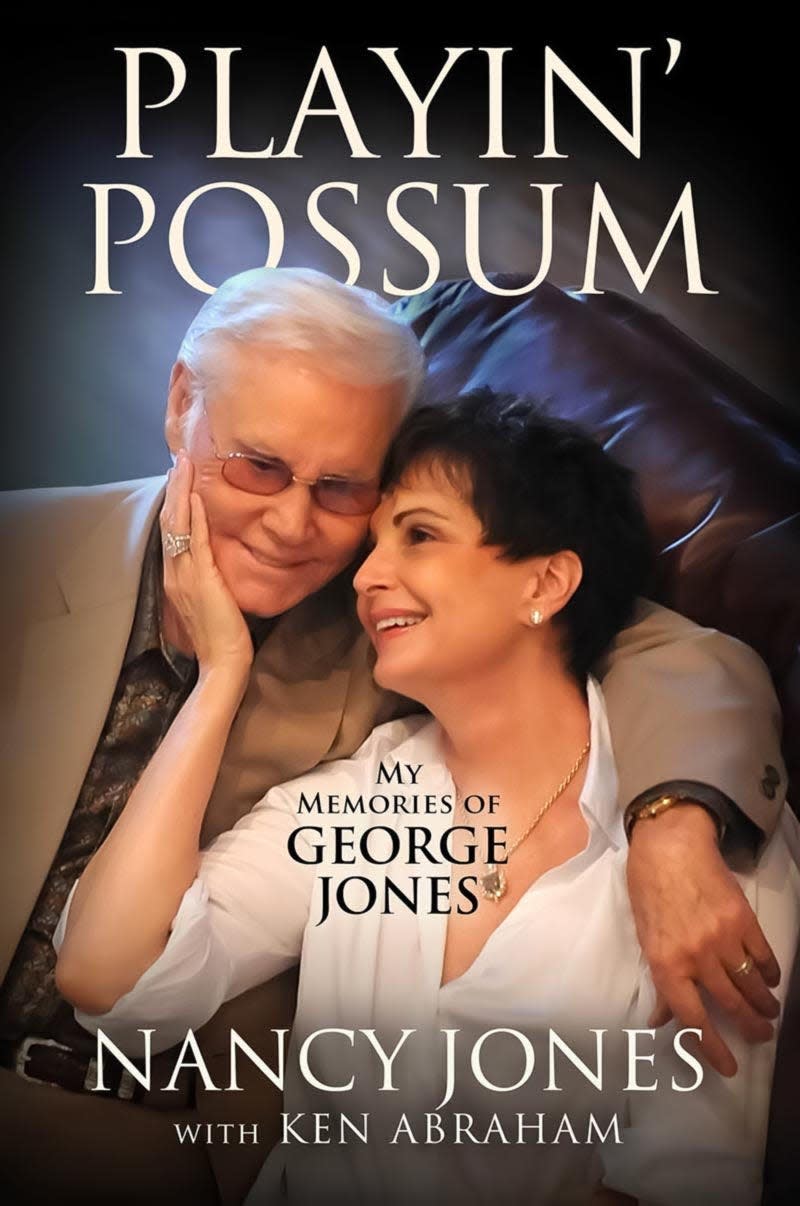
She was a pop fan whose tastes erred in the direction of Creedence Clearwater Revival, a rock band that had last released an album in 1972.
To say that she begrudgingly accompanied her friend is an understatement.
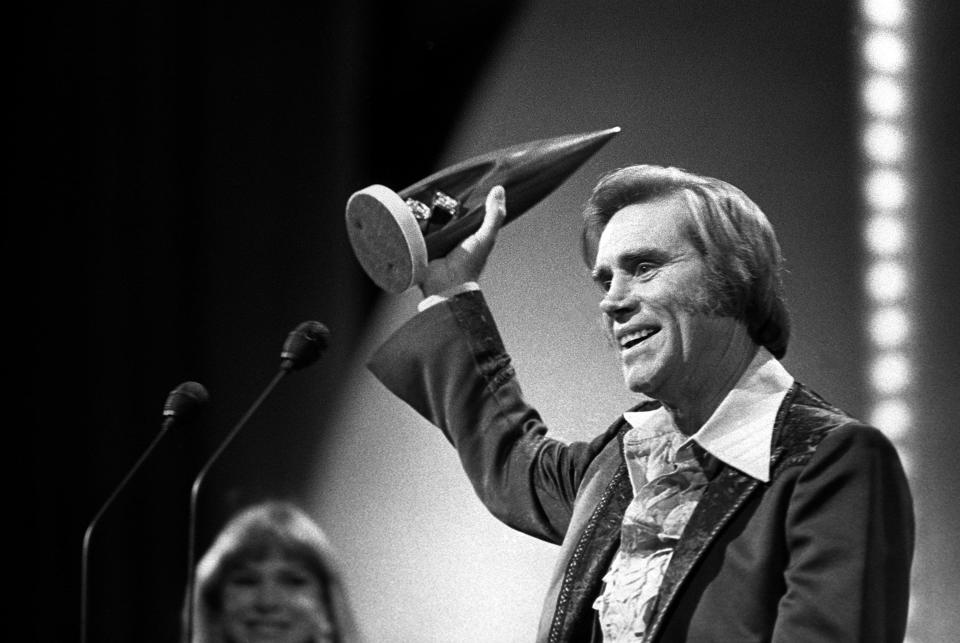
Hearing Jones' voice live changed Nancy's life forever.
"I'd never heard anyone sing songs with that type of phrasing," author and widow told The Tennessean.
Four decades following the performance, she's still in awe.
"It was an unbelievable, wonderful show. I instantly became a George Jones fan."
Less than two years later, they were married. Soon after, Nancy and her daughter, Adina, lived with George in Muscle Shoals, Alabama.
Though a hit-making star, Jones was renowned for his numerous addictions and erratic behavior. Nashville was not supportive of his desires in that regard. However, Muscle Shoals, a two-hour drive from Nashville, was a more welcoming environment.
By the early 1980s, his time in Muscle Shoals was spent around the city's gang-related drug scene. It was predicated on the desire of music stars like Jones to fuel their cocaine addictions while maintaining a steady recording schedule.
George lived in Muscle Shoals' Jackson Heights neighborhood during the late '70s, following his divorce from Tammy Wynette. During what was described as a "hell-raising" era, he worked out of the area's legendary studios, including Fame (where his frequent producer, Billy Sherrill, got his start), Broadway Sound, East Avalon, Music Mill and Widget. His frequent songwriting collaborator Earl "Peanutt" Montgomery lived in town, too.
"He wasn't going to last much longer," recalls Nancy about the state she found Jones in while they lived in Muscle Shoals.
News reports about him being in massive debt, disappearing for weeks, suffering from malnutrition, or being committed to psychiatric institutions were commonplace for that era.
"George was a gentle, great man — who had crippling anxieties and insecurities — when he wasn't drunk or messed up. Getting rid of the demons by saving him was the job that God put me in his life to (accomplish)," Nancy adds.
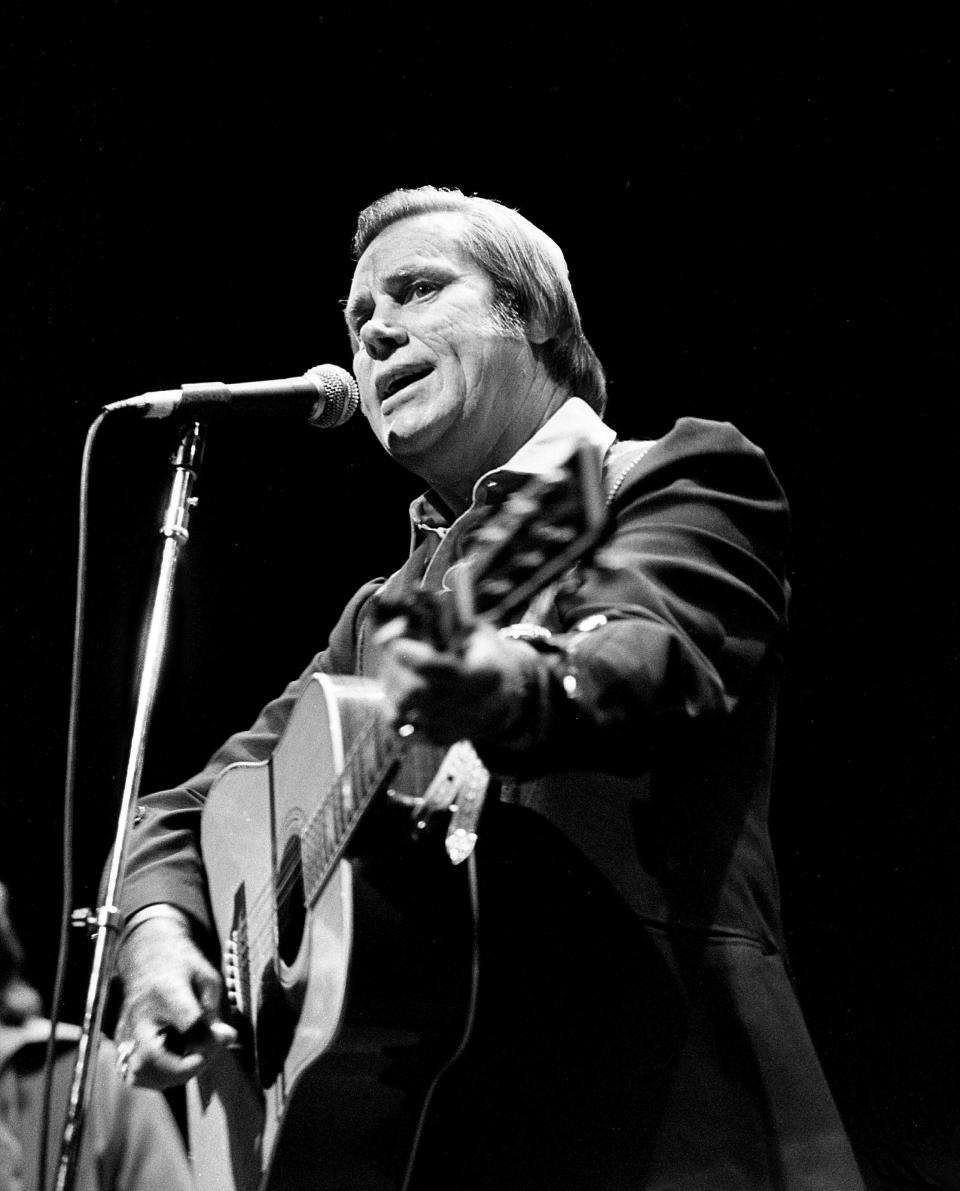
"It was a battle between me, him and the Lord," she continues.
Nancy's acceptance of spirituality in her life came along with her marriage to Jones.
At their initial partnership, she describes herself as "young and having a good time." However, as her relationship with Jones grew, she describes realizing that "only God could help her" to maintain her relationship with the performer.
Her time spent in prayer and study eventually aided her in connecting with the core of Jones' pre-stardom humanity, primarily based on a church-based existence.
Her faith didn't preclude her from having harrowing experiences in their early years together.
"Our family almost died," says Nancy about an era when she, George and her daughter's lives were reportedly threatened on numerous occasions.
She recalls a story of having her daughter alongside her in a car while almost being driven off a bridge into the Tennessee River. It was a frightening turning point.
From that moment forward, she was no longer peacefully calm during George's tumultuous Alabama existence and in the rest of their lives moving forward.
Moving George 500 miles south to Lafayette, Louisiana, was Nancy's initial solution, but not one that proved successful.
By 1994, Jones proclaimed himself as sober for "a decade" to Texas Monthly, and with Nancy now serving as his manager, he released eight more solo albums and a myriad of features, though none that eclipsed the resurgent height of his work when he was intriguingly at his lowest point.
The era followed a time when George and Nancy ran Jones Country, an outdoor music park near George's southeast Texas roots.
Though the era effectively slowed his chart-topping output, it connected him with then up-and-coming Texas-born country stars like George Strait and Randy Travis. By the time the Joneses moved back to Nashville, it was 1989. That era's pop-crossover moment, keyed by Garth Brooks, Alan Jackson, Clint Black and Travis Tritt, allowed Jones to re-emerge as if the wild decades of his life that preceded him were, in Nancy's mind, largely inconsequential.
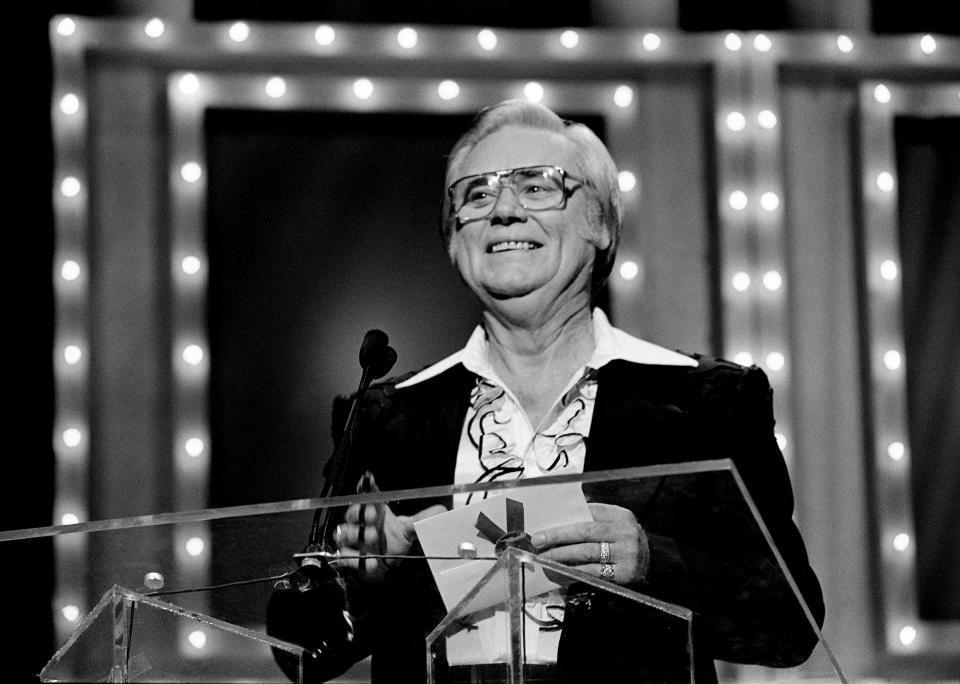
"We were welcomed with open arms and the guy known as 'No Show Jones' wasn't around as much anymore," she adds.
Jones joined acts like Johnny Cash and Waylon Jennings, whose outlaw tendencies were softened over time. Even if they could not maintain constant sobriety, their inimitable talent and charismatic personas allowed society to keep them in positive public favor.
On multiple levels, Nancy's doting ways repaired Jones' legacy — shockingly, even with his infamous relationship with ex-wife Wynette.
"Tammy and I were best friends," Nancy begins.
When Jones arrived back in Nashville, Wynette was married to her fourth husband, George Richey, and was between having had an eight-hour operation where a quarter of her stomach was removed and re-developing an addiction to painkillers.
Though both were flawed, their fabulous musical partnership continued via 1995's "One."
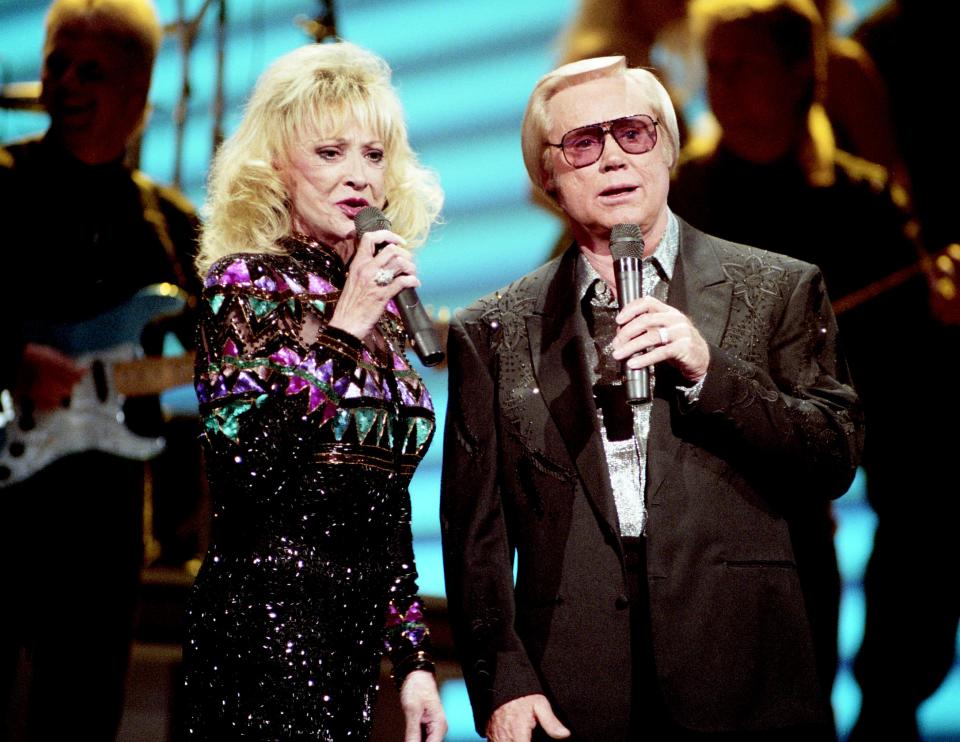
A tour followed the release.
More than anything, it casts Nancy's strength — as a counterbalance for George and Tammy's lifelong occasional antagonism toward each other — in the best light.
"Tammy and I were friends beyond the influence of our husbands," says Nancy.
Her influence allowed the beloved duo, against their will, to reunite.
"George and Tammy were both good people whose fans deserved their reuniting after so many troublesome years, but that tour wasn't fun," says Nancy, laughing as she recalled the "Jekyll and Hyde" difference between the duo's charming onstage duets and nightmarish backstage arguments.
Five decades of notorious yet beloved country stars, Tanya Tucker and Jelly Roll to Lorrie Morgan and Wynonna Judd, are all quoted supporting "Playing Possum."
The value of the read is as much in celebrating Jones' astonishing redemption as it is in serving as a cautionary tale to aspiring pop-country stars and their partners, who often are unwittingly along for the ride.
Tucker cites Nancy's ability to take care of the man and his career as necessary to her value to not just George but to establishing her life and the book's value to the entertainment industry.
"(Because) she is the most loving person, she wrangled (George) down and tamed him," adds Jelly Roll.
"It's all about removing the media's spin on who these people are and if you can discover and love that person at the core, that's best," says Nancy about the most significant lesson she learned about the music industry while married to George Jones.
She adds a note that unifies George and his fanbase, plus speaks to his value as a country music legend.
"George was an icon to people who saved their last dime to appreciate the same incredible yet relatable things that made me love and stay with him. He and his fans, much like myself, were flawed people who lived real lives and deserved strength and love."
This article originally appeared on Nashville Tennessean: George Jones' legacy highlighted in new book 'Playin' Possum'

